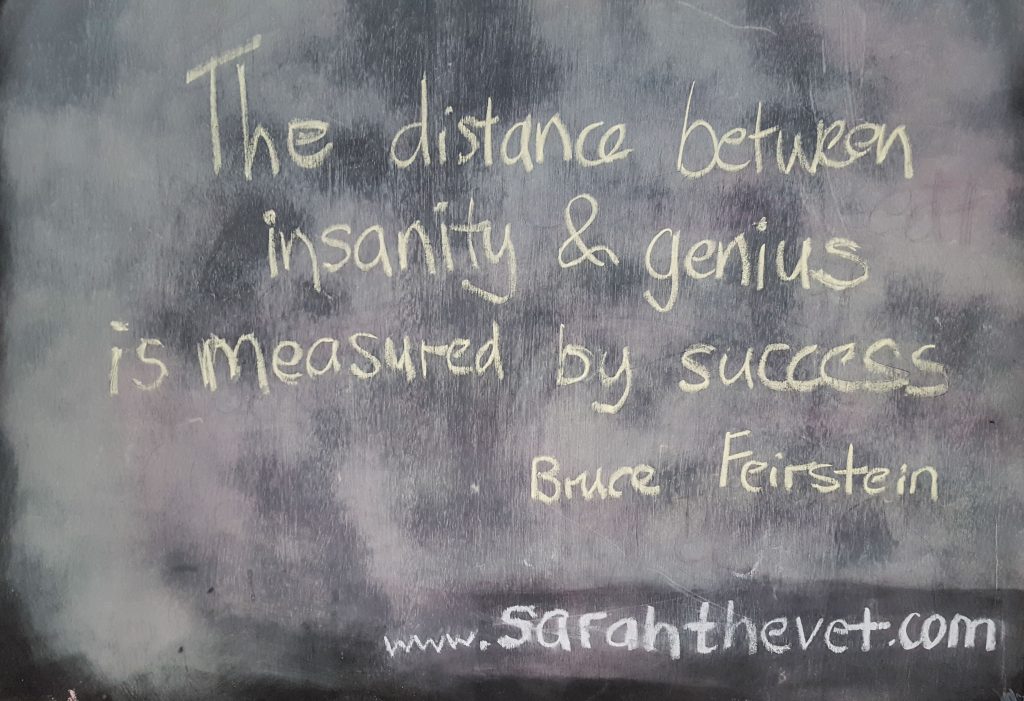It’s 10 months since I advertised myself to find a job and, being nearly the end of the year, it’s a perfect time to reflect on my experiences with reverse recruitment. If you haven’t read about how I came to advertise myself then please read the original post that started off this blog.

Pros
- It saves a lot of tedious and time consuming work searching for vacant positions especially in an employee’s market where publications and online searches are flooded with potential jobs. Get those vacant roles to come to you.
- Adverts tend to be lean on details that might be important to you so by being specific in your advert you can, in theory at least, attract the jobs that fulfil those requirements depending on your goals. However, this didn’t really happen as it should have done – see under cons too.
- Because the practices come straight to you, you have control over finding out the information that is important to you; this can be hit and miss with recruitment agents. or hiring managers.
- Skip the recruitment agents the practices have to pay. If the practice is saving a substantial proportion of your first year’s salary as recruiter fees, you potentially have more bargaining power for increased salary or benefits. Some practices also refuse to use recruitment agents at all so you could potentially miss an opportunity with them looking for jobs through traditional routes where agents have the majority of available roles.
- Much faster than traditional recruitment process so if you are in need of a job now, you can probably get one starting now. This is of a great benefit in the current fluid employment market.
Cons
- It adds a lot of tedious and time consuming work going through the overly hopeful (read: desperate) people trying to tempt you to look at what they are offering, potentially with a huge amount of sorting required to get to the practices you want to look at further. For example, though I specified I wanted to work for practices with a minimum appointment length of 15 minutes, I still had one place reply to my ad that the practice normal was 5 minute appointments but they would make an exception for me. Mmmm. Or the practices who were in cities despite my ad clearly saying I wanted more rural; Dagenham is not rural, sorry. Or perhaps they didn’t read my ad fully?
- I’m sure that another problem which is often marketed as a benefit is that the practices don’t know who they are looking for; what skills and experience they require, what non-clinical responsibilities and skills they need. How do you tell a genuine “we will create the role for the right person” versus “we will tell you absolutely anything if you just sign here”.
- You forgo any anonymity in the search so your current employers and network will know you are looking for a job. This would be difficult if you haven’t handed in your notice or if there are changes afoot in the practice (such as corporate buy-out) that haven’t been made public yet.
- You will put some people’s noses out of joint for doing this, especially recruitment agents. You are basically doing their job for them so they won’t get paid for filling the vacancy – although in some cases at least, the counter-argument is that you’re only doing their job because they aren’t. I have since had feedback from some recruitment agents that they don’t want to work me in the future because of this, even if I stop recruiting for myself.
- There are ‘for hire’ websites out there. The only veterinary specific one I can find is VetClick, but there are also Reed, Monster and Hiring and others. I put my advert on VetClick but all the responses from this were recruitment agents. Looking at the majority of people who post on there, I feel that perhaps this site was not a good fit for me. They also have their charges for job recruiters hidden, so hidden that I have been unable to discover them (it is free to post as available). Something to consider if you are considering using this site yourself.
- The scatter gun approach of reverse recruitment is not going to work if you can only work in a specific locality; you would be better off approaching the local practices directly. But it would be more useful if you have very specific requirements such as flexible working around childcare or caring for an aging relative, where the exposure to a large number of potential employers is more likely to find somewhere that can fit with your requirements.
Reverse recruitment also does not have to be so brazen as my attempt. Even just switching your professional LinkedIn profile to ‘open to job opportunities’ and updating the CV etc. will quietly bring roles your way. Also contacting your network and getting the word out to some choice colleagues should bring recommendations and, being personal contacts, should hopefully be good ones.

Did it work? Not for me, not this time. I found that as so many practices were desperate to recruit they were over promising and not being truthful about what the job would actually entail. Though some boldly boasted about their deficiencies and, in some cases, down-right illegal operations when pressed to give more details. (Yes, really – one boasted how it passed hospital status inspection by ‘borrowing’ equipment from another branch, another that the VMD were the devil and the cascade and out-of-date drugs being binned was all nonsense.) It was more than a full-time job for two weeks while I sorted the replies, which luckily coincided with a pre-booked staycation. It did get me a job at short notice which bought me the time and head-space needed to pursue other opportunities such as writing this blog and setting up as a locum but, sadly, it turned out that it was one that had just over-promised more convincingly than the others. That’s not a problem with reverse recruitment, of course, the same can happen with any job. On the positive side, reverse recruitment reminded me that I have value and am wanted which was refreshing after being in situations where I felt the opposite to this for a couple of years.
I’m not ruling out trying this again, but in future I would be much more specific and clearer in my requirements and I would acknowledge that it will take time to find the right role. Perhaps having a clear set of requirements in the ad and then a questionnaire to send to any respondents to check they meet my key requirements before taking it forward would help the clarity of purpose. I am also considering doing the reverse and seeking out practices that have the requirements that I want, even if they don’t currently have a vacancy – reverse headhunting. I think this will be very interesting….. and another blog post.


Leave a Reply